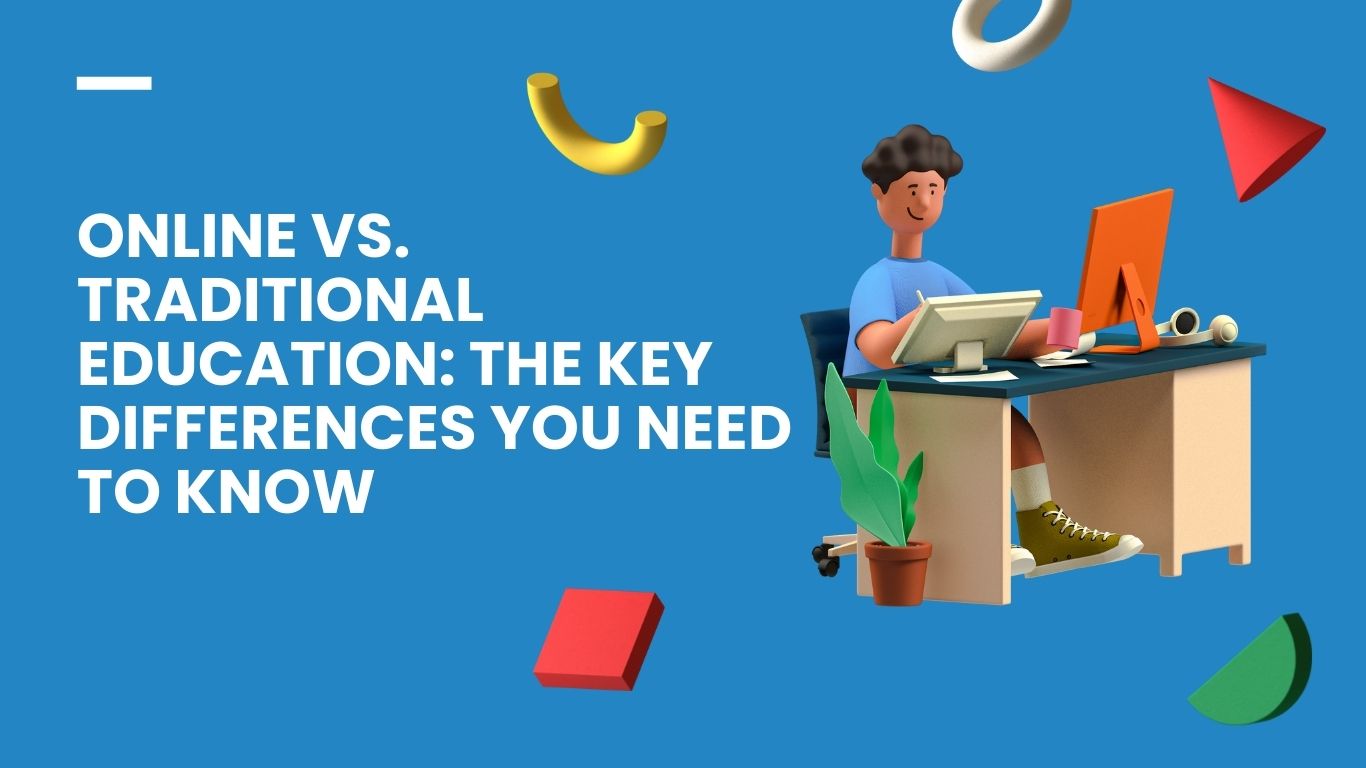Online vs. Traditional Education: The Key Differences You Need to Know




The debate between online and traditional education has gained momentum in recent years. With technology making education more accessible, many people are weighing the benefits of online learning against the familiarity of traditional classroom settings. This guide breaks down the key differences to help you decide which option best suits your needs.
Online learning, also known as e-learning or distance education, allows students to study from anywhere in the world at a time that fits their schedule. This approach has made education more accessible, especially for those facing financial or geographical barriers that might prevent them from attending a physical institution. Online schools, open schools, and online home schools are becoming popular alternatives to traditional education.
Online Education: Students can access course materials anytime and study at their own pace, making it ideal for those with jobs, family responsibilities, or other commitments. Home schooling and online home schools provide personalized learning options for students.
Traditional Education: Requires students to attend classes at scheduled times in a specific location, which may not be feasible for everyone.
Online Education: Learning happens in a virtual setting using video calls, discussion boards, and digital assignments. Online schools and open schools provide structured curriculums with remote instruction.
Traditional Education: Offers face-to-face interactions, allowing for immediate feedback and in-person discussions with peers and instructors.
Online Education: Generally more affordable as students save on commuting, housing, and physical study materials.
Traditional Education: Often involves additional costs like transportation, housing, and printed materials, making it a pricier option.
Online Education: Many online courses allow students to progress at their own speed, making it easier to balance other responsibilities. Home schooling also enables customized pacing.
Traditional Education: Follows a set pace dictated by the instructor and curriculum, requiring students to keep up with the class schedule.
Online Education: Requires a stable internet connection and familiarity with digital tools like learning management systems, virtual classrooms, and online libraries.
Traditional Education: While technology is used, it is not as central as in online education. Students still rely on textbooks, printed materials, and physical classroom experiences.
Online Education: Degrees from accredited online programs are becoming more widely accepted, with employers increasingly recognizing the value of remote learning.
Traditional Education: Still considered the gold standard by many employers and academic institutions, especially for fields that require hands-on experience or lab work.
Deciding between online and traditional education depends on your personal preferences, lifestyle, and career goals. Here’s a quick comparison to help you choose:
Criteria | Online Learning | Traditional Learning |
| Access Mode | Learn from anywhere | Attend classes in person |
| Flexibility | Study at your own pace | Fixed schedule with set class times |
| Interaction | Digital discussions and video calls | Face-to-face discussions and networking |
| Learning Pace | Self-paced (in most cases) | Instructor-led pace |
| Technology | Requires internet and digital skills | Uses technology but relies more on in-person resources |
| Degree Recognition | Gaining more acceptance | Universally accepted |
| Cost | Generally lower due to fewer expenses | Higher due to commuting and material costs |
| Access to Resources | Digital resources (e-books, online libraries) | Physical and digital resources (libraries, labs) |
Both online and traditional education have their advantages. Online learning offers flexibility, affordability, and access to quality education from anywhere, while traditional schools provide face-to-face interaction and hands-on activities.
If you prefer a learning style that fits your schedule and lets you study from home, online schooling can be a great choice. Whether you're considering an online school, open school, or homeschooling, the key is to stay focused and make the most of your learning journey.
At Interval Learning, we provide personalized online education for students from Class 1 to 12, helping them achieve academic success with expert guidance. Join us today and experience the future of learning!
Yes, online education can be just as effective as traditional education, especially when courses are well-structured and include interactive learning tools.
Yes, many employers now recognize and accept online degrees from accredited institutions, especially as remote work becomes more common.
Online education is generally more affordable because it eliminates costs like commuting, housing, and physical textbooks.
It depends on the student. Some thrive in structured, face-to-face settings, while others prefer the flexibility of online learning.